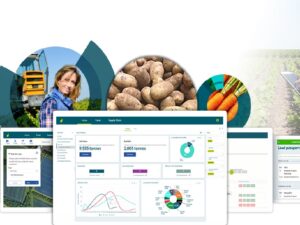 The potential growth of fracking in the UK poses a number of challenges and opportunities for landowners – and now there is the first comprehensive review to help them navigate their way through this emerging subject.
The potential growth of fracking in the UK poses a number of challenges and opportunities for landowners – and now there is the first comprehensive review to help them navigate their way through this emerging subject.
Published by the Central Association of Agricultural Valuers (CAAV), the guide – entitled Hydraulic Fracturing for Shale Gas – explores the legal and environmental impacts of fracking alongside planning considerations, surveys, and taxation issues. “As an independent organisation representing rural professionals who advise on every aspect of countryside management, it is vital that we lead the way when it comes to understanding the implications of new technologies and markets,” says Sarah Chorlton, rural policy adviser at CAAV.
Although Wales and Scotland currently have a moratorium on fracking, the English government offered 153 blocks for shale gas exploration in December 2015. With potentially 150bn cubic metres of shale gas in the UK, declining fossil fuel supplies and pressure to cut carbon emissions, it has provided a number of encouragements to assist shale gas operators.
“There is plenty of interest by developers in exploring these blocks so if landowners are approached they really need to understand the details. We are not here to take sides in the argument, simply to research the challenges and provide assistance with the practical implications,” says Miss Chorlton.
“Although the guide is essentially designed for land agents who may be required to advise clients about fracking projects, it will also be of use to solicitors and anyone else involved in the process.” The guide is split into five main chapters, including a background to fracking for shale gas, the energy debate behind it, planning and regulation, environmental impacts, and the implications for affected landowners.
“Because it’s such a complex area we stop short of supplying template agreements, but offer advice on points to consider during the drafting process, from test wells through to project completion and final decommissioning.” Considerations include compensation, indemnity against third party claims, potential payments to the landowner and neighbouring community, and environmental impacts, she adds.
- To order a copy of the guide, which is priced at £100, visit www.caav.org.uk. Or for more information contact Olivia Cooper, partner at Agri-hub PR services, on 01392 840009 or email [email protected].
Editors’ notes
The Central Association of Agricultural Valuers (CAAV) is a specialist professional body representing, qualifying and briefing over 2700 members practising in a diverse range of agricultural and rural work throughout England, Wales, Scotland and Northern Ireland.
CAAV members are agricultural and rural valuers who provide professional advice and valuation expertise on issues affecting the countryside from tenancy matters to sales and purchase of farms and land, from taxation and compulsory purchase to auctioneering, and from conservation issues to farming structures.
We are always happy to speak to the press – if you have any queries please contact Olivia Cooper, partner at Agri-hub PR services, on 01392 840009 or email [email protected].



